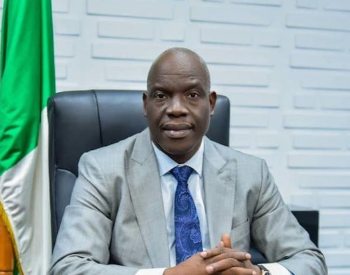The Federal Government, has announced the commencement of the 2024 oil bid rounds in accordance with the provisions of the Petroleum Industry Act, on Monday.
The announcement was made known in Abuja at the first edition of the NEITI House Dialogue organised by the Nigerian Extractive Industries Transparency Initiative, where the Nigeria Upstream Petroleum Regulatory Commission also disclosed that it generated N4.34tn revenue in 2023.
Speaking at the event, Gbenga Komolafe, the Chief Executive, NUPRC, stated that the oil licensing rounds were designed to enhance quality data set and would be conducted in a fair, transparent and competitive bidding process in a non-discriminatory manner as stipulated on Sections 3 and 74 of the PIA.
“It is my pleasure to announce to you that the 2024 licensing round as prescribed in the Petroleum Industry Act will commence from the end of this month and we will be going offshore to market it as part of our job.
“Our job equally entails marketing of the nation’s hydrocarbon resources to prospective investors. So we are going to do that, and the process has commenced. We’ve set very clear criteria to guide the implementation of the process from the beginning to the end transparently,” he stated.
Asked to state the amount which the country would earn from the bid rounds, Komolafe replied, “The assets that are being put on offer are mostly greenfield assets, so they are virgin assets and so to accurately quantify the amount to be generated might be difficult since they are greenfield assets.”
He, however, stated that the nation would earn billions of dollars from the assets in terms of royalties, taxies and other levies to be generated from the bid round.
As it relates to the 2024 bid process, Komolafe said, “We are currently putting on offer 12 blocks. But remember that we commenced a bid process in 2022 where we put 17 offshore assets on offer but as the date grew close to the last election we had to put a hold on it.
“However, right now we are completing that process and we are equally having 12 new bid rounds. So in totality we target to complete the 17 blocks and the ones on offer between now and early next year.”
On dormant oil blocks that were awarded to investors in the past bid rounds, Komolafe stated that the commission would revoke the awards and had commenced a review of these idle blocks.
“Currently the commission is making a comprehensive review of all the awarded assets. We are carrying out a review of all awarded assets to look at the ones that are under-performing. These assets are the ones that were not brought into maturation.
“They are idle and do not add value to the nation. So what we’ve done in that respect is that we’ve invoked the provisions of the Petroleum Industry Act to bring these assets into the basket and let then go through the competitive bid process as provided under Sections 73 and 74 of the PIA.
“Recall that the PIA has outlawed discretionary award of assets and so the award of assets now go through a fair, competitive and transparent process,” he stated.
Meanwhile, he said the NUPRC increase in size its revenue from N2tn in 2020 to N2.9tn in 2021. This rose to N3.78tn in 2022 and climbed further to N4.34tn in 2024
“In the last three years, you could see the growth of the revenue generation profile of the commission. The commission has been meeting and surpassing its revenue targets and that speaks to its transparent approach in revenue reporting,” Komolafe stated.
Ogbonnaya Orji, the Executive Secretary, on his part said, the NEITI House Dialogue is a quarterly briefing of NEITI stakeholders that would take place at the NEITI House in Wuye, Abuja.
“NHD will host notable policy makers in Nigeria’s extractive industries and related sectors, who will address issues that are of interest and topical to the industry.
He said, “The NHD will also get the invited policy maker to provide update or status report on the implementation of NEITI report recommendations as it concerns the agency. This is with a view to deepen not just government oversight and reforms in the extractive sector, but make it inclusive of all stakeholders,”.





























